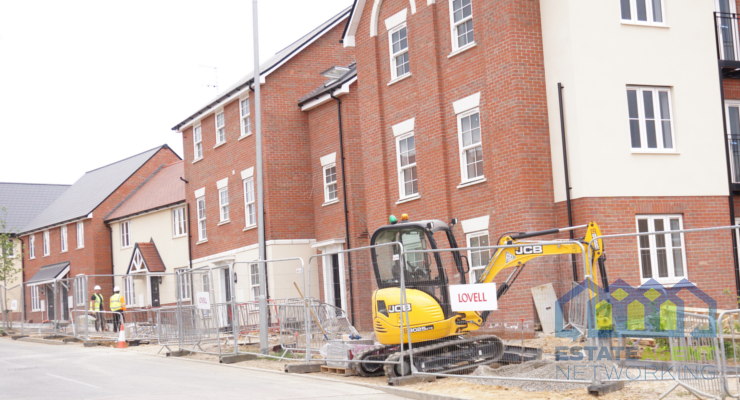Will Making Tax Digital Benefit British Landlords?
Renting out property comes with enough twists and turns – leaky pipes, cranky tenants, and the occasional headache from HMRC. Now, just when landlords have wrapped their heads around the current tax system, along comes Making Tax Digital (MTD), shaking things up like an unexpected tenant call at midnight. So, is MTD a shining beacon of administrative efficiency or just another hoop for landlords to jump through? Let’s take a look at how it stacks up.
What Exactly Is MTD?
MTD isn’t just a buzzword – it’s a government initiative designed to nudge businesses and individuals toward a fully digital tax system. Think of it as HMRC finally stepping into the 21st century, albeit reluctantly. Paper submissions? Out. Quarterly digital updates? In. The goal is to reduce errors and streamline the process, but the question is: will it actually simplify landlords’ lives or just digitise their existing woes?
MTD aims to modernise how taxes are managed, focusing on quarterly reporting through digital software instead of annual submissions. The rollout has been delayed several times – originally planned for 2024, it will now begin in April 2026 for landlords and businesses earning over £50,000 annually. By April 2027, the threshold will drop to £30,000, bringing more landlords into the fold.
Bookkeeping: Smooth Sailing or Drowning in Data?
For landlords still ‘happily’ scribbling down rental income on napkins or wrestling with outdated spreadsheets, MTD for landlords might feel like a storm brewing.
Under the new rules, landlords earning above £10,000 annually will need to report their income and expenses every three months – no more waiting until the last minute to cram it all into a self-assessment form at 11:59 pm on January 31st.
On the flip side, if you’re already tech-savvy and using accounting software, MTD could be more of a gentle breeze than a gale-force wind. Platforms like Xero, QuickBooks, or FreeAgent are geared up for MTD. And, let’s face it, not many of us will mourn the loss of manual tax forms.
The Learning Curve: A Bumpy Ride for Some
For the spreadsheet-averse, MTD might feel like being handed the keys to a Formula 1 car with no driving lessons. Yes, the government promises a “soft landing” period – essentially, HMRC’s version of holding your hand through the process – but mistakes will inevitably still happen. In the worst-case scenario, landlords risk penalties if they miss their quarterly updates, even if it’s just because they were busy unclogging a drain or chasing late rent.
That said, many landlords won’t need to start from scratch. A lot of the software options are intuitive enough, and once you’ve cracked the code, you might even find it easier to stay on top of your finances.
Costs: A Small Price to Pay or Yet Another Expense?
While HMRC touts the benefits of MTD, it doesn’t come cheap. The government estimates average one-off costs for businesses and individuals to be £320, with an ongoing annual cost of £110-115 thereafter. For those already comfortable with digital bookkeeping, the costs may be minimal. But for others, hiring an accountant or purchasing software could become a necessary expense. There’s also the question of time: some landlords may find they’re spending more of it on tax compliance and less on managing properties.
However, for those who play their cards right, MTD could pay off in the long run. It’s easier to spot deductible expenses when you’re updating finances regularly, potentially saving money when it’s time to settle up with the taxman. Think of it as an admin workout – tedious at first, but ultimately good for the financial waistline.
Will It All Be Worth It?
Whether MTD becomes a game-changer or a grind depends on how landlords adapt. Early adopters may find themselves ahead of the curve, benefiting from more accurate cash flow tracking and fewer surprises at tax time. Laggards, on the other hand, might end up scrambling to meet quarterly deadlines – cue the panicked calls to accountants everywhere.
MTD could even shift how landlords manage their businesses, encouraging them to become more organised and proactive. But will it revolutionise their lives? Let’s just say it’s more likely to be a helpful nudge than a seismic shift. After all, MTD is just a system – not a magical cure for broken boilers or demanding tenants.
Ultimately, HMRC’s goal is to reduce the £39.8 billion tax gap, with about 30% of errors stemming from incorrect filings. In theory, MTD helps landlords stay on top of expenses and income in real-time, leading to fewer last-minute surprises at the end of the tax year. However, those who struggle with technology may initially find the transition daunting.
Final Thoughts: Evolution, Not Revolution
Making Tax Digital isn’t going to make or break British landlords, but it will change how they manage their finances. Embrace it, and MTD might feel like swapping a clunky old typewriter for a sleek laptop. Resist, and it might feel more like running a marathon with your shoelaces tied together.
Whether landlords see MTD as a friend or foe depends on their mindset. Stay flexible, learn the ropes early, and the shift could be relatively painless. Ignore it, and you might find yourself tangled up in red tape – or worse, in HMRC’s bad books.
In short? MTD isn’t the end of the world, but it’s definitely the end of tax procrastination. Time to get digital – or at least get someone else to do it for you.









